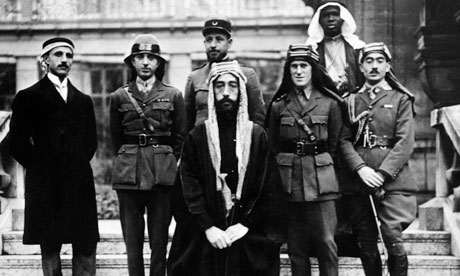
The Asian world was in crisis in the late 19th century. From China to India to Turkey, societies that had stood largely unchanged for centuries were powerless to resist western armies and commerce. Appalled by the vulgarity and materialism of the white barbarians, eastern elites nonetheless recognised that something would have to be done. But what? In this erudite and engaging book, Pankaj Mishra identifies three main strands in the Asian response to the threat of western modernism: reactionaries who believed that the continent's long-standing religious traditions would ultimately prevail; moderates who wanted to cherry-pick from the western toolkit while leaving their own societies largely unchanged; and revolutionaries such as Atatürk and Mao Zedong who thought that nothing less than radical secularisation and a new ideology would galvanise their societies to compete in the modern world.
What gives From the Ruins of Empire its charm and richness of texture, however, is that its main focus is not on major players such as Gandhi and Mao, but on two little-known and seemingly ineffectual intellectuals whose writings would inspire later generations. Jamal al-Din al-Afghani was a comparable figure to Alexander Herzen or Karl Marx: a peripatetic journalist, teacher and agitator, working in cafes, mosques and homes, expelled in turn from Afghanistan, India, Turkey and Egypt between 1860 and 1900. A contradictory and inconsistent thinker who tailored his ideas and his wardrobe to local circumstances, al-Afghani was a Persian-born Shia Muslim who pretended to be a Sunni from Afghanistan, and in his early days a liberal – critical of the fanaticism and political tyranny that held back many Islamic societies and an advocate of education for women. He "preached the necessity of reconsidering the whole Islamic position and, instead of clinging to the past, of making an onward intellectual movement in harmony with modern knowledge". But he never wavered in his hatred of the British and in his later years became an Islamic ideologue, advocating armed struggle and violent resistance – though not, as with Osama bin Laden, terror. Al-Afghani's only political achievement was to organise a smoking boycott which forced the Shah of Persia to cancel a tobacco monopoly granted to a foreign company. He died prematurely in 1897, a bitter and disappointed man. Yet his legacy was enormous: he coined the vocabulary of 20th-century anti-western Islamic rhetoric.
Six years after al-Afghani's death, the Chinese intellectual Liang Qichao visited the United States for the first time. As someone who believed that China must make a radical break with Confucianism, he was hoping to find inspiration. Instead he was appalled by the inequalities in wealth and the political corruption he witnessed; the squalid tenements of New York and the way that white Americans treated their black and Chinese fellow citizens. American democracy, he decided, did not provide the model for China. "No more am I dizzy with vain imaginings," he wrote. "No longer will I tell a tale of pretty dreams. In a word, the Chinese people must for now accept authoritarian rule; they cannot enjoy freedom." But perhaps, in 20, 30 or 50 years' time, he added, it might be possible to "give them Rousseau to read, and speak to them of Washington".
Prophetic words – no wonder Liang would influence Mao Zedong. Yet Liang's involvement in practical politics proved as disastrous as al-Afghani's. He was eclipsed by Sun Yatsen during the Chinese revolution of 1911 and, in the chaos that followed, threw in his lot with a corrupt warlord. His last significant act was to form part of the Chinese delegation to the Versailles peace conference, which vainly urged President Wilson to dismantle the western empire in the east, a rebuff that led many Asian intellectuals to turn to Moscow and communism – most famously, Ho Chi Minh, who had hired a morning suit in the hopes of seeing the American president. By then, however, the carnage and savagery of the first world war had taken much of the lustre off western materialism and worship of science: in hindsight, western hegemony in the far east was doomed. Japan's attempt to become an imperial power herself, having once been the patron of Asian nationalism, only accelerated that process.
When he reaches the interwar period, Mishra shifts gear, away from intellectual biography towards historical essay. He gives an excellent outline of the different paths to modernity taken by the main Asian countries, managing to keep thematic control of increasingly divergent narratives, though he does stud the text with too many names that are unfamiliar to the western reader. Just when it seems that Mishra will end in full triumphalist mode, he concludes in a final twist that, while Asian societies have by and large got their revenge for their past humiliations, they have in the process lost many of the values which once distinguished them. Both India and China now have the inequalities of wealth that so disturbed visitors to the west a hundred years ago.
As his hatchet job on Niall Ferguson in the London Review of Books last year showed, Mishra is no mean polemicist, but he is also an intellectual historian who can skilfully paint in background, simplify boldly to open up broad perspectives on the past, and popularise without condescension. Of course, a book of this scope has to be selective – one major omission is the impact of oil on modern Islamic society – but overall it gives a voice to characters often ignored by western historians and makes an eloquent contribution to the "west versus the rest" debate.

